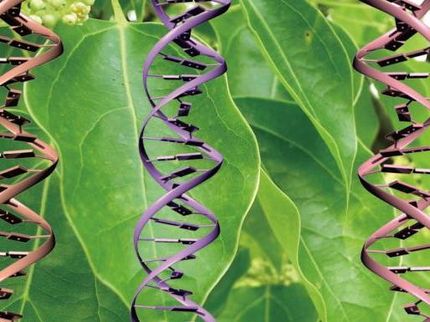First 'genetic map' of Han Chinese may aid search for disease susceptibility genes
Genome Institute of Singapore researchers compiled map based on genome-wide variations of 6,000 samples
The first genetic historical map of the Han Chinese, the largest ethnic population in the world, as they migrated from south to north over evolutionary time, was published by the American Journal of Human genetics by scientists at the Genome Institute of Singapore (GIS).
Based on genome-wide DNA variation information in over 6,000 Han Chinese samples from 10 provinces in China, this new map provides information about the population structure and evolutionary history of this group of people that can help scientists to identify subtle differences in the genetic diversity of Asian populations. Understanding these differences may aid in the design and interpretation of studies to identify genes that confer susceptibility to such common diseases as diabetes in ethnic Chinese individuals. Understanding these differences also is crucial in exploring how genes and environment interact to cause diseases.
With the genetic map, the GIS scientists were able to show that the northern inhabitants of China were genetically distinguishable from those in the south, a finding that seems very consistent with the Han Chinese's historical migration pattern. The genetic map also revealed that the genetic divergence was closely correlated with the geographic map of China. This finding suggests the persistence of local co-ancestry in the country.
"The genome-wide genetic variation study is a powerful tool which may be used to infer a person's ancestral origin and to study population relationships," said Liu Jianjun, Ph.D., GIS Human Genetics Group Leader.
"For example, an ethnic Chinese born and bred in Singapore can still be traced back to his or her ancestral roots in China," Dr. Liu said. "By investigating the genome-wide DNA variation, we can determine whether an anonymous person is a Chinese, what the ancestral origin of this person in China may be, and sometimes which dialect group of the Han Chinese this person may belong to.
"More importantly, our study provides information for a better design of genetic studies in the search for genes that confer susceptibility to various diseases," he added.
Of particular interest to people in Singapore are the findings that while the majority of Singaporean Chinese hail from Southern China as expected, some have a more northern ancestral origin.
GIS Executive Director Edison Liu, M.D., said, "Genome association studies have provided significant insights into the genes involved in common disorders such as diabetes, high cholesterol, allergies, and neurological disorders, but most of this work has been done on Caucasian populations.
"More recently, Dr. Liu Jianjun from our institute has been working with his Chinese colleagues to define the genetic causes of some of these diseases in Asian populations," the GIS Executive Director added. "This work refined those tools so that the results will not be obscured by subtle differences in the genetic diversity of Asian populations. In the process, Dr. Liu has reconstructed a genetic historical map of the Chinese people as they migrated from south to north over evolutionary time."
Original publication: Jieming Chen, Houfeng Zheng, Jin-Xin Bei, Liangdan Sun, Wei-hua Jia, Tao Li, Furen Zhang, Mark Seielstad, Yi-Xin Zeng, Xuejun Zhang , Jianjun Liu; "Genetic Structure of the Han Chinese Population Revealed by Genome-wide SNP Variation."; The American Journal of Human Genetics 2009.
Most read news
Topics
Organizations
Other news from the department science

Get the analytics and lab tech industry in your inbox
By submitting this form you agree that LUMITOS AG will send you the newsletter(s) selected above by email. Your data will not be passed on to third parties. Your data will be stored and processed in accordance with our data protection regulations. LUMITOS may contact you by email for the purpose of advertising or market and opinion surveys. You can revoke your consent at any time without giving reasons to LUMITOS AG, Ernst-Augustin-Str. 2, 12489 Berlin, Germany or by e-mail at revoke@lumitos.com with effect for the future. In addition, each email contains a link to unsubscribe from the corresponding newsletter.


























































